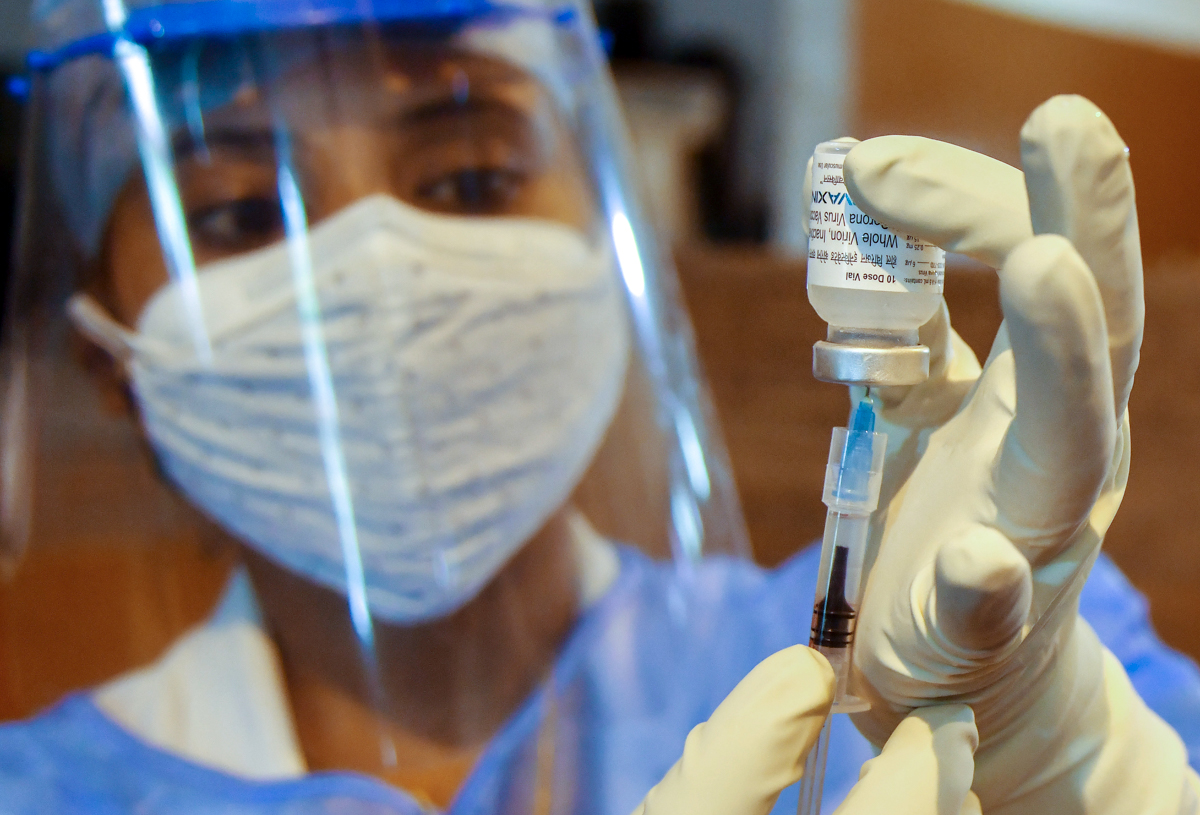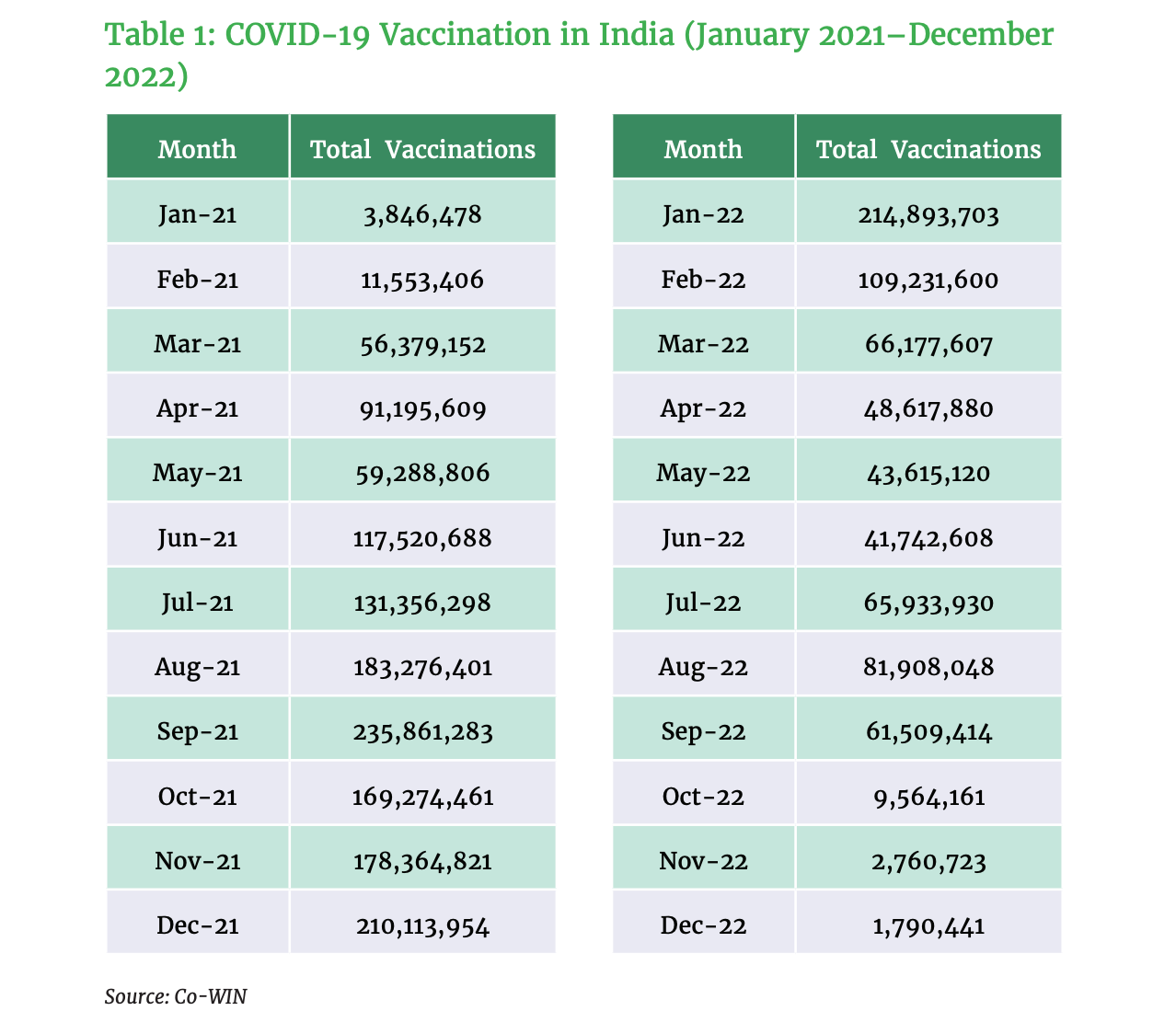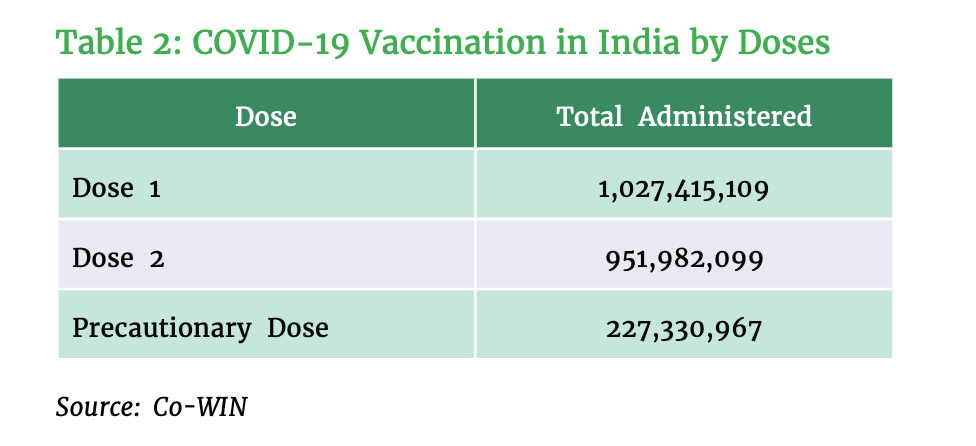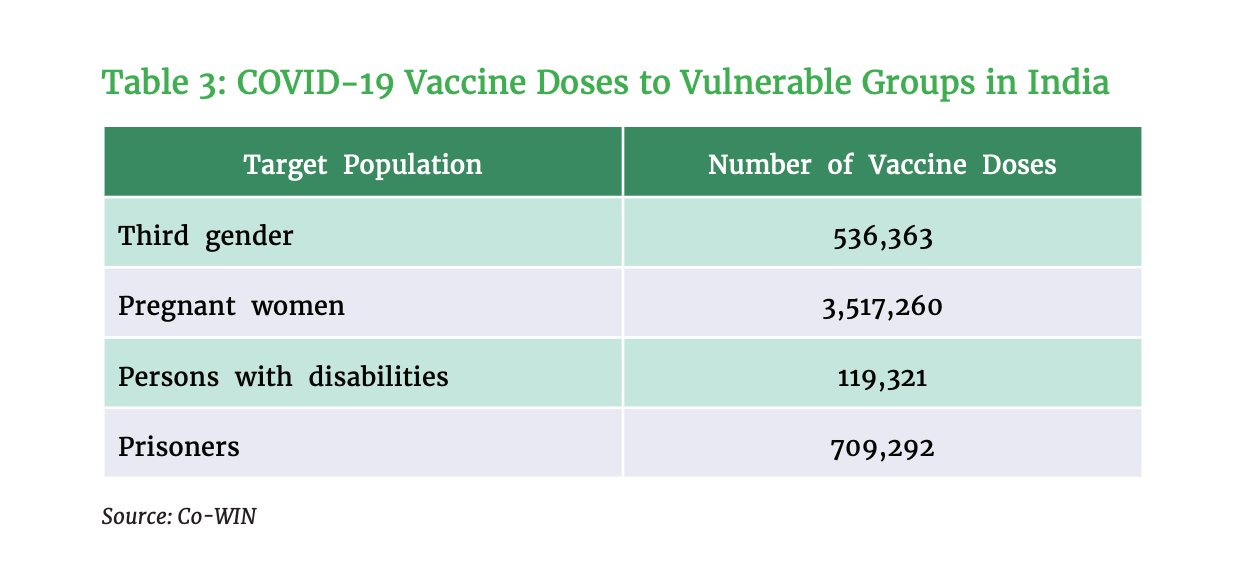WIN-ning for India: A Decade of Healthcare Innovation
September 9, 2023

When the world was grappling with the shocks of an unprecedented pandemic, India was feverishly developing and deploying vaccines at record pace. After a few early stumbles in its pandemic response, the country launched the world’s largest immunisation programme in January 2021. Powered by a homegrown app, Winning Over COVID or Co-WIN, India delivered over two billion vaccines in just 18 months, demonstrating the efficiency of its indigenous digital infrastructure.
India’s digital public health infrastructure comprises e-platforms, apps, and solutions that support the delivery of healthcare at the last mile. Within a decade, India built robust digital health platforms that can track the vaccine supply chain, deliver billions of safe and effective vaccines, and is geared to immunise every expectant mother and child against deadly but preventable diseases.
Despite the multiple crises being faced by the world—such as the aftershocks of the COVID-19 pandemic, protracted and compounded conflicts, and the climate crisis—all of which have enormous impacts on health, digital technology is creating a quantum shift in healthcare in India. During the pandemic, Co-WIN enabled the country to administer vaccines at a staggering pace, surpassing the combined vaccinations achieved by the US, Brazil, Indonesia, and Japan; at one point, 14,000 people across the country were being vaccinated every minute.

Co-WIN allowed individuals to register for vaccinations, locate nearby centres, and obtain a digital certificate that was valid globally—even as many other countries were still using paper-based confirmations. The development of Co-WIN took place within three months while simultaneously tackling the health crisis triggered by the pandemic. This included designing and developing modules for programme managers at all levels (administrator module), for healthcare workers to make real-time entries of vaccine doses administered (vaccinator module), and for citizens to register, book appointments, and access their vaccination certificates (citizen module). These were also linked with Aadhaar and other approved national IDs.
Additionally, of approximately 20 million healthcare and frontline workers in India, one million were mandated to use Co-WIN and trained to operate the digital platform. A technical helpline was set up to resolve issues faced by healthcare workers while using Co-WIN. The digital platform ensured timely availability of vaccines, allocation of doses, and reach to the remotest corner of the country, highlighting how digital public infrastructure built using open-source technologies can work for the benefit of millions.
Till date, in India, more than 2.2 billion total vaccine doses have been administered, serviced by more than a million health workers, protecting more than 1.1 billion people over 73 percent of whom were spread across rural and hard-to-reach areas.

Traditionally marginalised groups such as migrant workers, the transgender community, and individuals without any form of identification could also get vaccinated, demonstrating the government’s people-first approach to delivering care.

Co-WIN and India’s ability to deploy a large-scale digital platform to manage vaccinations has been globally acknowledged, from policymakers to tech giants. A Stanford University report, drawing on work published in the Lancet, estimated that undertaking the vaccination campaign at scale saved 3.4 million lives. The Co-WIN model has received widespread international acclaim, including recognition under the Exemplars in Global Health initiative, which identified Co-WIN as a modular, interoperable platform designed to handle scale.
Accelerating Healthcare through Digitalisation
India has demonstrated that inclusive digital health infrastructure can overcome challenges such as inequitable access to life-saving vaccines, supply-demand mismatch, and low-quality vaccines. Historically, these challenges have hampered consistent access to health services for millions of vulnerable people.
Today, India is at the cusp of digitalising the world’s largest universal immunisation programme for expectant mothers and newborns—which protects against 12 vaccine-preventable diseases, including diphtheria, tetanus, polio, measles, rubella, rotavirus diarrhoea, and hepatitis B— with the launch of the digital platform U-WIN (Universal Immunization Programme-WIN). U-WIN aims to improve the performance of the country’s immunisation program and is expected to become the world’s largest electronic immunisation registry, reaching 100 percent of around 29 million pregnant women and 26 million newborns annually.
U-WIN was piloted for six months in 65 districts across India starting January 2023. Even before the pilot ended, U-WIN had seen over a million registrations of beneficiaries (mother and child) and tracked the administration of over three million vaccine doses.
However, in a country as diverse as India, challenges persist. Over the years, states have used different mechanisms, platforms, and data sources to report and monitor births. Additionally, data is often collected manually, without uniform data-capturing and reporting mechanisms, which sometimes leads to errors in reporting and analysis, disrupting vaccine supply chains and delaying health service to vulnerable populations.
Timely and accurate data is the cornerstone of effective systems for health. This is where digitalisation comes in handy. The U-WIN platform is designed to become a common database that can be referred to by all stakeholders, including states and union territories, to make informed decisions related to the immunisation programme. U-WIN will also allow expectant mothers and children to receive vaccinations anywhere in the country, ensuring that migrant populations are not left behind. In addition, the system will allow citizens to book and schedule appointments and keep track of the vaccines they need to take.
U-WIN will be integrated into India’s digital stack and will be interoperable with other portals such as the Ayushman Bharat Digital Mission (ABDM)—a national digital health ecosystem that connects all digital health platforms, the Electronic Vaccine Intelligence Network (eVIN), the National Identification Number (NiN), and the Reproductive and Child Health Portal (RCH 2.0), based on evolving needs. With the integration of U-WIN and ABDM, which aims to develop the necessary backbone to support the integrated digital health infrastructure of the country, this would be a pioneering implementation to scale.
A Decade-Long Journey
India’s quest to build a modern digital platform to manage routine vaccinations began almost a decade ago. With people and their well-being at the heart of this vision, India identified its vaccine supply chain as the first building block of its digital health infrastructure.
Introduced in 2014, eVIN is a smart vaccine supply chain management system that revolutionised how vaccines were received, stored, and distributed to the last mile. It is a mobile, cloud-based application that caters to the needs of stakeholders across the vaccine supply chain and improves service delivery by ensuring rational distribution and equitable access to vaccines. An independent assessment conducted in 2018 showed that, in just four years since its pilot, eVIN saved over 90 million vaccine doses which would otherwise have been wasted, with a return on investment of US$2.91 on every dollar invested.
The eVIN initiative was led by the Ministry of Health and Family Welfare (MoHFW), Government of India, with support from Gavi, the Vaccine Alliance. The MoHFW onboarded UNDP as a technical partner to design, develop, implement, and scale up the eVIN solution, given its experience with improving the health supply chain in over 70 countries. Active across all 36 states and union territories, eVIN’s journey from 2014 to 2023 is not just a transition from paper to smartphone but demonstrates India’s capabilities in the digital and technology sector. eVIN allows health centres to safely store their vaccines at the right temperature and allows people to access vaccines without fear of stockouts.
Today, eVIN boasts the use of leading technologies such as Big Data architecture to manage and process huge amounts of data and API-based development to ensure interoperability that allows for seamless exchange of information. The platform is built on open-source software solutions, making it a sustainable, scalable, affordable, and convenient technological intervention.
From Local to Global
These indigenous systems are linked to India’s globally recognised digital public infrastructure, India Stack, placing the country at the forefront of global best practices in digital public health. India Stack refers to a set of digital public goods that are interoperable and scalable, and offer developers the opportunity to build applications utilising its open-source software. Although the project bears India’s name, the vision of India Stack is not limited to a single country; it can be applied to any nation, both developed and emerging.
During its G20 presidency, India has been showcasing digital health innovations and digital public infrastructure that work for millions of people, improving the efficiency and quality of healthcare. India has also indicated its intent to offer such technologies to interested countries.
The COVID-19 pandemic highlighted the need to build digital public health infrastructure that makes quality healthcare services accessible for all. The world can take a leaf out of India’s story to turn this into reality.
This article was originally published in "Accelerating Global Health: Pathways to Health Equity for the G20" - a compendium of essays that discuss the state of public health in G20 countries and explore current initiatives that are being taken to promote health equity.
https://www.orfonline.org/wp-content/uploads/2023/09/ORF-PATH_Health-n1.pdf

 Locations
Locations